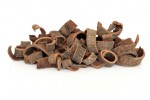 Here’s an herb that you can take to ease stress symptoms: magnolia bark. Magnolia bark, like many other herbal remedies, has been used in Chinese medicine for thousands of years. Traditionally, it has been taken to boost energy levels and to treat anxiety and depression.
Here’s an herb that you can take to ease stress symptoms: magnolia bark. Magnolia bark, like many other herbal remedies, has been used in Chinese medicine for thousands of years. Traditionally, it has been taken to boost energy levels and to treat anxiety and depression.
Magnolia bark contains biphenol compounds. Many phenols are believed to exert an anti-cancer effect. For example, epigallocatechin-3 gallate is a phenol found in green tea that has been shown to decrease your risk for getting cancer. Flavonoids are also phenolic compounds that have anticancer effects. The two biphenols (phenols with a slightly different chemical structure) found in magnolia bark are honokiol and magnolol. These two compounds are thought to contribute to magnolia bark’s anti-stress effects by lowering cortisol levels.
Cortisol is your body’s main stress hormone. It’s involved in a lot of important functions including glucose metabolism and regulation of blood pressure. However, it’s best known for the role it plays in responding to stress. A small increase in cortisol can boost brain function, make you less sensitive to pain and give you a sudden increase in immune function. All of these changes are associated with your body going into “fight or flight” mode.
Unfortunately, if your cortisol levels stay high for too long, the beneficial effects of the hormone are erased. Blood sugar levels fluctuate, your thinking ability deteriorates, your blood pressure goes up, you’re more likely to gain weight, and your immune system becomes less effective.
For those experiencing stress, magnolia bark may be one way of returning cortisol levels to normal. Magnolia bark was tested in a clinical trial, along with another herb known for its calming effect: phellodendron. Research points to the fact that a combination of magnolia/phellodendron could help reduce cortisol levels and ease symptoms of stress. In traditional Chinese medicine, phellodendron (not to be confused with the houseplant philodendron) is used to treat diarrhea, swollen joints, obesity, diabetes, and kidney problems.
The researchers decided to find out if phellodendron and magnolia together could help competitive athletes who are often stressed out by intense workouts fit into an already busy schedule.
Thirty-five men and 21 women were recruited for the trial. The athletes were given either a magnolia/phellodendron extract or placebo for four weeks. At the end of the trial period, the herbal extract group showed significantly lower levels of cortisol compared to placebo. The herbal extract group also experienced lower overall stress, lower fatigue levels, less tension, less depression, less anger, and lower incidences of confusion. The research team concluded that the magnolia/phellodendron bark extract could be an effective natural remedy for chronic stress in adults.
Magnolia bark also comes with other unexpected benefits, too. It can also freshen your breath and prevent tooth decay. Breath mints containing the bark were used by a research team in Illinois. The researchers reported that the magnolia bark mints killed more than half the germs that are responsible for bad breath within half an hour. The extract also showed promise in helping to kill off the bacteria responsible for causing cavities.
If you find yourself constantly stressed, and are looking for a natural herb to relieve stress, then magnolia bark might just work for you.
Source(s) for Today’s Article:
Talbott, S.M., et al., “Effect of Magnolia officinalis and Phellodendron amurense (Relora(R)) on cortisol and psychological mood state in moderately stressed subjects,” J Int Soc Sports Nutr. August 7, 2013; 10(1): 37.
Browning, L.D., “Magnolia Tree Bark Extract Fights Bad Breath, Tooth Decay, Stress,” Natural News web site, January 2008; http://www.naturalnews.com/022466_magnolia_bark_bad_breath_herbal.html, last accessed August 15, 2013.
Brennan, J., “What are the health benefits of phenols?” Livestrong web site, August 2011; http://www.livestrong.com/article/516883-what-are-the-health-benefits-of-phenols/, last accessed August 15, 2013.
